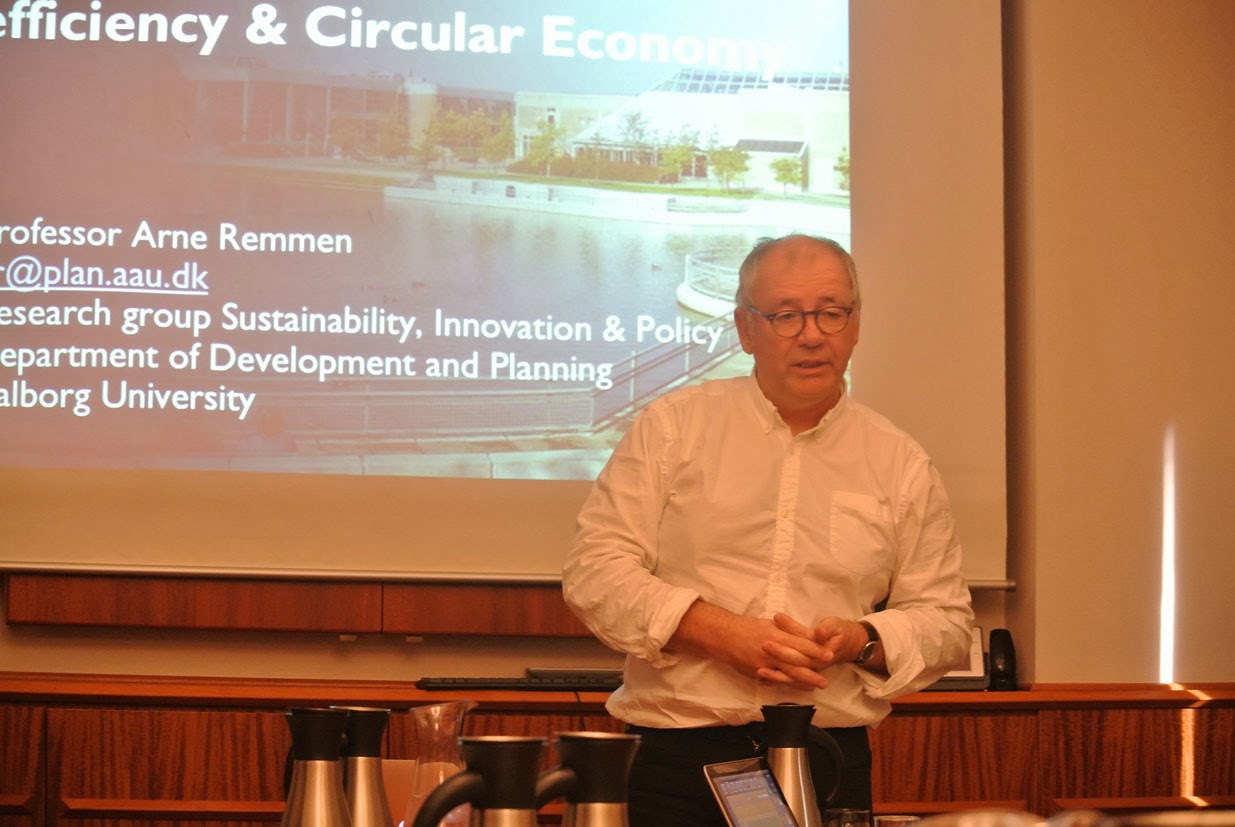Law enforcement necessary to address issues of illegal, inferior goods trade
BY EDMUND SMITH-ASANTE, BACK FROM AALBORG, DENMARK
In spite of international agreements signed by European and African countries, trade in substandard goods continues to persist.
Proper disposal of used electronic appliances also remains a very big challenge for many African countries including Ghana.
This problem has been compounded with the advent of the technological age, where electronic gadgets are constantly being upgraded and consumers are going in for the latest inventions, with no clue of how to dispose of outmoded and non-functioning ones.
Old appliances are therefore constantly being disposed of, albeit without appropriate regulations on how to do that without harming the environment.
To deal with the challenge, Professor Arne Remmen, a highly reputed specialist in energy and economy at the University of Aalborg, Denmark, has asked for an improvement on enforcement of laws on illegal trade and collaboration between European countries and Ghana.
In an interview with the Daily Graphic last week in Aalborg after a presentation on “Resource Efficiency and Circular Economy”, Professor Remmen advised African governments to collaborate with the governments in Europe to make sure the illegal trade in outmoded or worn-out electronics was stopped.
The professor, who had earlier addressed a 12-member group of African journalists on a Green Growth Study Tour of Denmark, said, “I think we have international agreements, but we need stronger enforcement of that.”
While saying that the Geneva Convention restricted the whole of Europe from the exportation of worn -out electronics, he admitted, “But of course it is always an issue of enforcing this because you can put it in a container.”
Speaking to the issue of requiring electrical power to recycle, he said, “It depends on how you organise it. In some cases, it does take some power, but if you are able to recycle materials, if you look at the computer with all the aluminum, then the recycle medium will have much less power consumption and co2 emission.
Durability and Standards
Agreeing that some manufacturers used inferior materials to maximise profits, Prof. Remmen said it was one of the reasons the European Union (EU) had set standards for light bulbs for energy efficiency and the idea was to now move to resource efficiency to ensure that the material could be recycled, while durability stayed on the agenda.
This story was first published by the Daily Graphic on March 7, 2014
 |
| Professor Arne Remmen |
In spite of international agreements signed by European and African countries, trade in substandard goods continues to persist.
Proper disposal of used electronic appliances also remains a very big challenge for many African countries including Ghana.
This problem has been compounded with the advent of the technological age, where electronic gadgets are constantly being upgraded and consumers are going in for the latest inventions, with no clue of how to dispose of outmoded and non-functioning ones.
Old appliances are therefore constantly being disposed of, albeit without appropriate regulations on how to do that without harming the environment.
To deal with the challenge, Professor Arne Remmen, a highly reputed specialist in energy and economy at the University of Aalborg, Denmark, has asked for an improvement on enforcement of laws on illegal trade and collaboration between European countries and Ghana.
In an interview with the Daily Graphic last week in Aalborg after a presentation on “Resource Efficiency and Circular Economy”, Professor Remmen advised African governments to collaborate with the governments in Europe to make sure the illegal trade in outmoded or worn-out electronics was stopped.
The professor, who had earlier addressed a 12-member group of African journalists on a Green Growth Study Tour of Denmark, said, “I think we have international agreements, but we need stronger enforcement of that.”
While saying that the Geneva Convention restricted the whole of Europe from the exportation of worn -out electronics, he admitted, “But of course it is always an issue of enforcing this because you can put it in a container.”
Speaking to the issue of requiring electrical power to recycle, he said, “It depends on how you organise it. In some cases, it does take some power, but if you are able to recycle materials, if you look at the computer with all the aluminum, then the recycle medium will have much less power consumption and co2 emission.
Durability and Standards
Agreeing that some manufacturers used inferior materials to maximise profits, Prof. Remmen said it was one of the reasons the European Union (EU) had set standards for light bulbs for energy efficiency and the idea was to now move to resource efficiency to ensure that the material could be recycled, while durability stayed on the agenda.
This story was first published by the Daily Graphic on March 7, 2014



Comments
Post a Comment